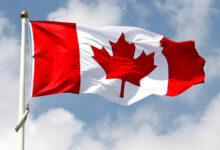
How to Immigrate to Canada as a Nurse
Immigrate to Canada as a Nurse – Nurses are an essential part of Canada’s healthcare system, and their contributions cannot be overstated. The COVID-19 pandemic has only magnified the shortage of skilled nurses across the country, making it an ideal time for internationally educated nurses to consider immigrating to Canada. With the demand for their services at an all-time high, the opportunities for nurses in Canada are limitless.
If you are a nurse who has recently obtained your qualification abroad or has several years of experience under your belt, immigrating to Canada can be a wise career move.
👉 Relocate to Canada Today!
Live, Study and Work in Canada. No Payment is Required! Hurry Now click here to Apply >> Immigrate to CanadaIn this comprehensive guide, we will take a closer look at the immigration programs available for nurses, the licensing process you will need to complete in order to practice in Canada, and the in-demand nursing positions that you can aspire to.
Whether you are a seasoned nurse or just starting out in your career, Canada offers a supportive environment and endless opportunities for growth and advancement. So why not take the leap and make Canada your new home as a nurse?Information Guide Nigeria
Read Also: How Long Does it Take to Immigrate to Canada?
Reasons to move to Canada as a nurse
Opportunities for Internationally Trained Nurses in Canada
Canada offers several attractive opportunities for internationally trained nurses, including a shortage of skilled nurses, high demand for nursing jobs, and good salaries.
Shortage of Skilled Nurses
The government’s Job Bank projects a continuing shortage of registered nurses (RNs) in Canada for the foreseeable future. Estimates show that there will be 191,100 job openings for RNs between 2019 and 2028, but only 154,600 qualified candidates, including new graduates and newcomers, to fill these positions, resulting in a nationwide shortfall of 36,500 RNs. Job vacancies for RNs and nurse aids and patient service associates have nearly doubled in Canada from 2019 to 2021.How to Immigrate to Canada as a Nurse
High Demand for Nursing Jobs
Nurses are in high demand in most provinces in Canada, including Ontario, British Columbia, Quebec, Alberta, and Manitoba. These provinces are making efforts to recruit and train nurses, as well as to make it easier for internationally educated nurses to immigrate to Canada.
For example, Ontario has allocated $342 million in its 2021 budget to add 5,000 new and upskilled registered nurses and registered practical nurses to its healthcare workforce. Similarly, Quebec plans to recruit 1,000 foreign-trained Francophone nurses by 2023.
Good Salaries for Nurses
Nursing salaries in Canada are generally good, although they vary based on the province and the National Occupation Classification (NOC) code of the occupation. The median income for registered nurses in Canada is around $76,000 per year, with many RNs earning as much as $92,000 per year.7 Best Weight Dumbbells in Nigeria and their prices
👉 Relocate to Canada Today!
Live, Study and Work in Canada. No Payment is Required! Hurry Now click here to Apply >> Immigrate to CanadaDoes Canada accept foreign nurses?
International nurses play a crucial role in maintaining Canada’s healthcare system. Immigration programs prioritize their selection for permanent residency due to the high demand for their skills.
Before seeking employment, it’s important to obtain a license in the province you plan to work in. Most provinces offer the option to start the licensing process from abroad, which enables foreign nurses to enter the job market quickly.
Immigration programs for internationally qualified nurses
Canada is a country that welcomes skilled and qualified workers from around the world to come and work in its many industries, including the healthcare sector.
Newcomers who have the necessary skills and qualifications to fill critical skill gaps in the country can apply for permanent residency in Canada.
There are several PR programs available to those who wish to move to Canada as a nurse.
Federal Skilled Worker (FSW) Program
The Express Entry Federal Skilled Worker (FSW) program is a popular choice for skilled workers looking to immigrate to Canada.9 Best iOS Phones in Nigeria and their Prices
This program allows internationally qualified skilled workers to immigrate to Canada as permanent residents. The selection process for this program is based on the Comprehensive Ranking Score (CRS) of each applicant’s profile, rather than their specific occupation.
The CRS score takes into account a range of factors, including the applicant’s age, education, work experience, language proficiency, and other relevant factors. Additional points are awarded to those who have a Canadian job offer, a provincial nomination, Canadian work experience, or educational credentials.
Read Also: How to Immigrate to Canada by Buying a Business
Provincial Nominee Programs (PNP)
All Canadian provinces and territories, except Quebec and Nunavut, have their own Provincial Nominee Programs (PNP) that allow them to nominate applicants who have the necessary skills and qualifications to fill labor shortages in their specific province.
The selection process for Express Entry PNP streams is based on the applicant’s CRS score, while other PNP streams allow provinces to nominate skilled workers in specific professions or National Occupation Classification (NOC) codes to meet urgent market demands.
Nurses may have a better chance of receiving a provincial nomination from a province that is in need of their skills.NYSC Portal
Quebec Regular Skilled Worker
Program (RSWP) The Regular Skilled Worker Program (RSWP) is a program run by the provincial government of Quebec that allows the province to invite applicants who have the necessary skills, training, experience, and language proficiency to work and settle in the province.
Applicants in all occupations can submit an Expression of Interest under the RSWP, and selection is based on a range of factors such as age, language proficiency in French and English, years of experience, education, and others.
Those who are selected will receive a Quebec Selection Certificate (also known as a Certificat de sélection du Québec or CSQ) and can then apply for PR with the Immigration, Refugees, and Citizenship Canada (IRCC).
Types of nursing licenses in Canada
Nursing is a regulated profession in Canada and requires a license from the provincial or territorial regulator. The licensing process can be initiated before arrival in Canada in most provinces.
Types of Licenses
- Nurse Practitioner (NP): A master’s degree in nursing or an advanced nursing credential in adult, pediatric, or primary healthcare along with RN experience is required for an NP license. In some cases, the NP license is an extension of the RN license, and RN registration or eligibility is mandatory.105 Good Morning My Love Messages
- Registered Nurse (RN) and Registered Psychiatric Nurse: A bachelor’s degree in nursing is required for an RN license. Evidence of recent nursing practice is necessary if the degree was earned over three years ago.
- Licensed Practical Nurse (LPN)/ Registered Practical Nurse: A diploma in nursing is required for an LPN license. Evidence of recent nursing practice is necessary if the diploma was earned over three years ago.
Note: The license names may vary by province, and entry-level licenses for nursing students or fresh graduates may also be available. British Columbia and Alberta have separate licensing processes for Registered Psychiatric Nurses and RNs.
In British Columbia, Ontario, and Nova Scotia, a single college regulates all nursing categories. In all other provinces and territories, different nursing categories have their own regulators.
Read Also: Canada Express Entry Requirements and How to Apply
How to get licensed in Canada as a foreign-trained nurse
To become a licensed nurse in Canada, you must follow the steps outlined below in detail:
Register with the National Nursing Assessment Service (NNAS):
- Create an online account by selecting your nursing category and preferred province for the license application.
- Pay the main application fee of $650 USD plus taxes.
- Provide two notarized, signed identification documents, including one photo ID such as a passport, driver’s license, or government-issued ID. Additional accepted documents include birth certificates, name change affidavits, and marriage certificates.
- Submit a nursing education form to each international post-secondary institution attended for nursing education. The institutions must send the completed forms, along with academic transcripts and course descriptions, directly to NNAS.
- Submit the nursing registration form to all licensing authorities where you were registered as a nurse outside Canada. The licensing authorities must send the completed form to NNAS directly.200 Romantic Love Message For Her
- Submit the nursing employment form to all employers worked for in the past five years. The employers must send the completed forms to NNAS directly.
- If your first language is not English or French, you must take an approved language test (IELTS, CELBAN, or TEF) and meet the minimum score requirement. If your nursing study program was in English or French and you live and work in a country where the primary language is English/French, you do not need to take a language test.
Note: NNAS will charge a translation fee if the documents submitted are not in English or French.
Register with your provincial regulator:
- Once NNAS has assessed your credentials, they will prepare a report on your nursing education, registration history, and experience and send it to your provincial regulatory authority.
- Register with your provincial regulator, provide the required documents and pay the licensing fee.
- Requirements may vary by province/territory, but the process typically includes registration with NNAS and providing the required documents and fees to your provincial regulatory authority.
In conclusion, obtaining a nursing license in Canada involves registering with NNAS, providing the required documents and fees, and registering with your provincial regulatory authority. The process may vary by province/territory, but it typically involves submitting your nursing education, registration, and employment forms, along with proof of identity, and language proficiency, and paying fees to both NNAS and your provincial regulator.
Read Also: Canada DV Lottery 2023 Registration Form; Apply here
Apply to register as a nurse in your province
After you have received your report from the National Nursing Assessment Service (NNAS), it’s time to apply for your nursing license through your provincial or territorial regulator. The regulator will only begin the process after receiving your file from NNAS, and you will need to pay an application fee which varies based on the province and nursing category you’re applying for.
The regulator will thoroughly review your nursing education, recent practice, and language proficiency to ensure you meet the licensing requirements. In case your application doesn’t meet the requirements, you may be asked to complete additional education or evaluations to qualify.
To obtain a provincial nursing license, you must fulfill the following criteria:
- Be a Canadian citizen, permanent resident, or hold authorization to work in Canada.
- Pass the applicable nursing category Registration Examination to demonstrate your competency. For example, RN license applicants must take the NCLEX-RN exam (National Council Licensure Examination), and LPN license applicants must take the REx-PN test (Regulatory Exam – Practical Nurse).
- Complete the Jurisprudence Examination to show your understanding of the laws, regulations, standards, and guidelines that apply to nursing in your province or territory.
- Declare any mental or physical conditions or disorders that might affect your ability to practice nursing.
- Submit a criminal background check report and declare any previous offenses or instances of being refused registration as a nurse in any country.
Once you have met all the licensing requirements, you can pay the registration and first-year membership fee and complete your registration online.
How much money do nurses make in Canada?
The salaries of nurses in Canada can vary based on the location, specialty, and years of experience.
According to the Government of Canada’s Job Bank, the median hourly wage for Registered Nurses and Registered Psychiatric Nurses is $40, with the highest median salaries being recorded in Nunavut ($67.83/hour), the Northwest Territories ($53.23/hour), Yukon ($45.28/hour), and Saskatchewan ($44.23/hour).
In certain regions of British Columbia, Ontario, Alberta, and Manitoba where the demand for Registered Nurses is higher, hourly salaries in excess of $50 are not uncommon.
Nurse Practitioners earn a median wage of approximately $53.37/hour, while Licensed Practical Nurses can earn between $22 to $33.23 per hour.
Read Also: 10 Best Ways to Get Out of Nigeria and Travel to other Countries
Finding Your First Nursing Job in Canada: Tips and Recommendations
Familiarizing Yourself with Local Job Market Requirements
To find the best job opportunities in Canada, it’s important to understand the specific requirements of the local job market. Review job postings for your nursing category to identify the skills and qualifications that Canadian employers look for. Consider completing any certifications or training programs to increase your chances of being hired.
Gaining Additional Qualifications and Skills
Enhance your competitiveness for nursing jobs in Canada by investing in additional certifications and skill-building programs. Consider obtaining certifications in basic life support, CPR, and first aid, as these are highly sought-after in the field. These can be completed before obtaining your RN/LPN license.JAMB Portal
Should you consider moving to Canada as an internationally educated nurse?
The demand for skilled nurses in Canada exceeds the local supply, making it an attractive destination for internationally-trained nurses seeking a new career opportunity. Through Canadian immigration programs, you have the chance to immigrate to Canada and establish permanent residency as a nurse.
However, obtaining a license to practice nursing in Canada can be a lengthy process and may require additional exams or education to fulfill provincial requirements.
Check JAMB RESULT
Check and Confirm: How much is Dollar to Naira








